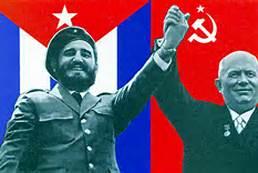The transition between high school and college, leaving home and moving to a new environment, and learning to cope without parents has been an interesting experience. There has been no serious damage for the most part, and the hardest part of this semester was living without my hometown best friends at my side. I have a great relationship with my family, but I have enjoyed the distance. There are temptations around every corner, and the responsibility of choosing the right decisions has come into play often. The freedom is quite enjoyable, but I can see how easy it is for students to wander off the path and get sucked into mistakes. Back home, I grew up with the same faces and those faces had similar mindsets and goals. If I needed help, there were people I could talk to who knew my life inside and out. Here, I have learned to appreciate the differences that students have to offer and the variety of ideas they possess. Overall, the college lifestyle and my First Year Experience (FYE) classroom has provided me with a better understanding of the diversity of the students at Georgia Southern University.
Before engaging in my FYE class, I had no idea the type of lessons we, as a group of freshman, would learn. I assumed this was a course that taught students how to transition between high school and college and the ways to go about being a freshman i.e. what courses to take for your major and mostly academic advice. In the syllabus for FYE, there is a Student Learning Outcomes section which contains goals this course sets to achieve. The first being skills needed to find academic sources and outside context that aids students in supporting arguments whether it be through research or everyday knowledge. The second outcome is engaging in campus resources and pursuing opportunities to better engage in career goals. This particular outcome, as we learned in class, challenged me to ponder if being a Biology major will lead to success. Choosing a career to pursue at ages 18 and 19 is very intimidating. As previously discussed in my Degree Engagement blog entry, “The [University] catalog finds requirements for particular degrees and has a walk through for each component of college… It guided me through internship options and courses to take that are considered pre-requisites for the broad Marine Biology career” (charvmoore.blogspot.com). In this particular week’s blog, the FYE class was assigned to explore career resources provided directly from Georgia Southern. Fellow classmate Livia Lovett, in her Campus & Community Engagement blog entry stated, “As you work hard and pursue your passions it is so important for students to have a connection to their campus and the community surrounding them” (livialovettblog.blogspot.com). While this week did not have my most enjoyable topic, it benefited me personally because I learned where to go to if I have questions about my major.
The final outcome on the Student Learning Outcomes section of the syllabus is my favorite and overall topic I took the most away from: diversity and inclusion. During this prolonged week’s topic, the class was assigned to read Make Your Home Among Strangers by Jennine Capo Crucet. This novel was not entirely my favorite, but I appreciated learning about Hispanic culture and the struggles faced by minorities living in America. In my Diversity and Inclusion: Which Way Home discussion blog entry I wrote that “We do not get the choice to be brought into this world, and we cannot choose the lifestyle we are born into” (charvmoore.blogspot.com). Therefore, we should all act with love and acceptance because we’re all human.
After the completion of reading, the author, Crucet, was set to speak at Georgia Southern to the freshman student body. I was beyond excited to hear about Crucet’s process and motivation in writing this novel, but the events to follow her speech were blown out of proportion.
Image from blog: Week 9: Diversity & Inclusion IV (charvmoore.blogspot.com)
On the night Crucet spoke to the school, her books were burned and tweets were exchanged that were actions by students revolting against Crucet. During her speech, white privilege came up as a hot topic and was conveyed to students in an aggressive tone which Crucet likely did not mean. As stated from my Week 9: Diversity & Inclusion IV blog, “Doctora made the point that her being Latina was one of the reasons she came off as aggressive. Crucet even has addressed in the past that her temper often gets misunderstood, and during her speech at GSU she had to grasp the podium to keep from using hand signals that could be mistaken as aggressive” (charvmoore.blogspot.com).
Left image credit-
Right image credit- make-your-home-among-strangers.jpg
In the days to follow, word of Crucet’s speech and the future actions made by some of the student body, made its way around the school and right into the FYE classroom. As written in my Make Your Home Among Strangers blog entry, “Instead of talking about her book, which is what I, and the majority of students, were expecting, she spoke on race and growing up a Latina woman in the United States. Many students were outraged as she made comments on white privilege, too” (charvmoore.blogspot.com). I stayed mostly quiet in class because I felt Crucet’s speech was aggressive towards me, being a white female. I’d like to think I am accepting and open to culture and different mindsets, but I was scared to show that side because of the intimidation. I am fully aware of white privilege and that it is prominent in this country, but Crucet’s generalization of white people made me feel that my voice would come across as snarky and privileged. However, it did open my mind to the fact that there are people out there who have so much hate inside them and have little patience i.e. the students who burned Crucet’s book. As fellow peer Enysa Moore claimed, “Crucet came on a little strongly, but she was giving personal accounts of her life. No matter what she said, the students should not have done something so petty such as burning her book. They definitely should not have threatened her life!” (Week 8: Make Your Home Among Strangers. ebm4fye.blogspot.com). These actions of hate were unnecessary and detrimental to Georgia Southern as a whole, and I believe this conversation was important to talk about in FYE.
Image credit- ebm4fye.blogspot.com
FYE class has especially been enjoyable because of the professor who taught it. Not only is she accepting and caring, she has a diverse background as well and is a bilingual Spanish professor. I took Spanish in high school and have always wanted to be able to speak it fluently. Along with all the lessons this class taught me, the one I can confidently take away is that I am motivated to take college Spanish classes and pursue my goal of speaking Spanish.




